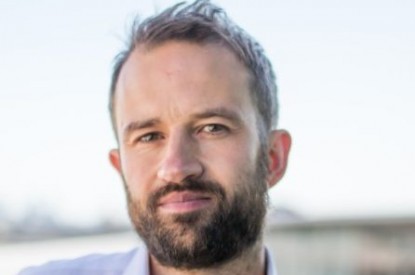Pulse
FSB: Sidelined by legacy technology?
By Lewis - 24 June 2021
Ahead of an unprecedented 18 months of sport, Chris Graham, Head of Marketing at FSB, says a modern platform will be key if operators are to offer bettors the experience they are seeking.
From a sports point of view, the next 18 months are unprecedented with the football European Championships and World Cup in consecutive years for the first time ever. This gifts operators two huge events to drive acquisition alongside other supporting events like the Olympic Games, the Ryder Cup and the proposed Anthony Joshua v Tyson Fury fight.
This will see operators embark on big-budget marketing and advertising campaigns combined with aggressive bonusing as they look to capture more market share than their rivals. While this is important, operators must also consider whether they are able to offer their players the betting experience they are seeking with consumer expectations higher than ever.
To do this, they must continue to invest in their product and further hone and improve the user experience offered to new and existing players. This is why it is imperative that operators are aligned with a platform provider that enables them to drive these huge events across all channels as seamlessly as possible.
MEETING SWELLING DEMAND
For example, demand for bet builder, player props and instant market products continues to grow, and operators must be able to offer these if they are to engage players. The industry has moved on in the three years since the last major international football tournament, the 2018 World Cup, and customer expectations are higher today than they were in the previous decade.
Operators using legacy technologies will not have the tools to offer things like automated bonussing, omni-channel harmonisation and player-powered products like Bet Builder and Bet Boost.
Not only that, but they will likely be unable to handle the large bet volumes that should be expected over the next year and a half and especially around major events such as football finals and the Super Bowl.
Operators need to ask themselves whether they really want to be stuck on legacy technologies as World Cup games clash with the end of the regular NFL season showdowns come December next year?
Volumes will be large, the pressure on platforms will be intense and end users will expect the sportsbooks they wager on to run seamlessly at all times. They will also expect to see new products and functionality, and this is an area in particular where operators using inflexible, slow legacy tech will miss out.
In addition to this, onboarding and the overall customer journey (manual crediting, slow system speed) can be fraught with problems when using legacy technologies.
A SUPERIOR PLAYING EXPERIENCE
Modern technologies can not only help operators mitigate these problems, but also handle the huge bet volumes expected while also exceeding consumer expectations. An all-in-one tech stack platform provides operators with future-proof technology that allows them to scale and adapt accordingly during the crucial 18 months ahead.
Modern platforms built on a single code base allow operators to work within a single back office that gives them a 360-degree view of their data, player information and front end. Choice and control are at the heart of this technology due to the modular nature of the platform.
So rather than a one-size-fits-all model redolent of legacy systems, these agile platforms allow operators to plug-in the products, offerings and data feeds that work for them. In some cases, this also allows operators to leverage the power of services like trading optionality which sees the operator trade certain sports while their platform partner manages the rest.
This could work especially well for US operators who wish to trade their own domestic sports but leave the major international football/soccer competitions over the next 18 months in the hands of expert traders at their platform provider.
Another advantage of a modern platform is the ability to harness big data. Operators that are maximising and mining the opportunities that big data provides will ultimately drive a richer, more personalised user experience and that will be key over the next 18 months.
DON’T FEAR MIGRATION
Operators running legacy technologies really should consider migrating to a modern platform now so that they are ready to leverage the unprecedented sporting action over the next year and a half. Migrating to another platform has always been viewed as a major operation with a lot at stake and operators are right to take a cautious and considered approach.
We have seen bad examples of platform migration in the past and with the huge transfers of server data infrastructure involved there is always an element of risk. Of course, the ultimate concern is a disjointed migration that leads to increased downtime, complications and additional cost.
These concerns can be laid to rest by selecting the right platform and a partner that has experience in successful platform migrations. The technical prowess of modern-day tech stacks means a migration can be a stress-free experience.
These stacks are versatile, robust and complex enough to deliver migrations efficiently and effectively – we recently carried out a full migration for a major German iGaming group in just eight weeks. For sports betting operators, migrations usually take around six months when you factor in rehosting, data transfer and regulatory fulfilments that may need to take place.
This is why operators powered by legacy technologies need to act now if they are to successfully migrate to a modern platform in time for the incredible run of sports events coming up. Migrating may seem risky, but the rewards of better data management, front end control, near 100 per cent up time and wider player offerings make it worth it.
Today, punters really do expect a comprehensive and compelling experience; if they can’t meet these requirements operators will be sat on the sidelines while the action takes place on the field.


